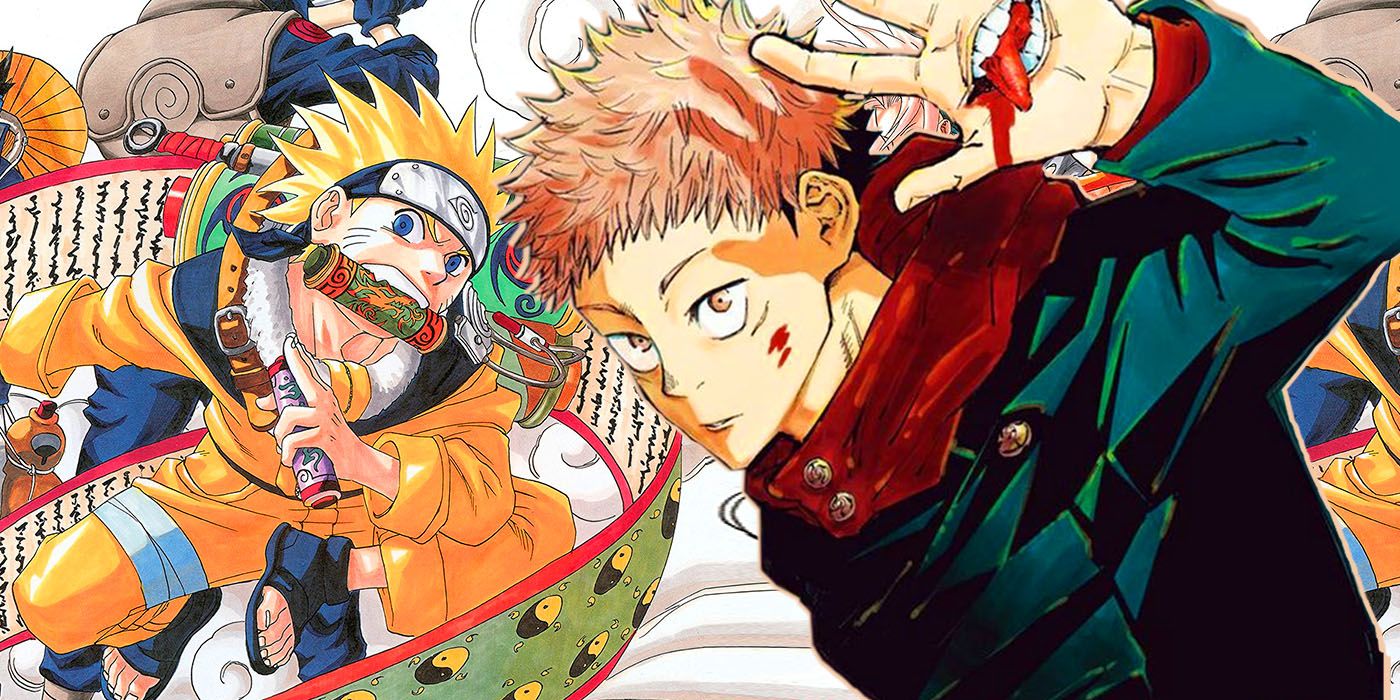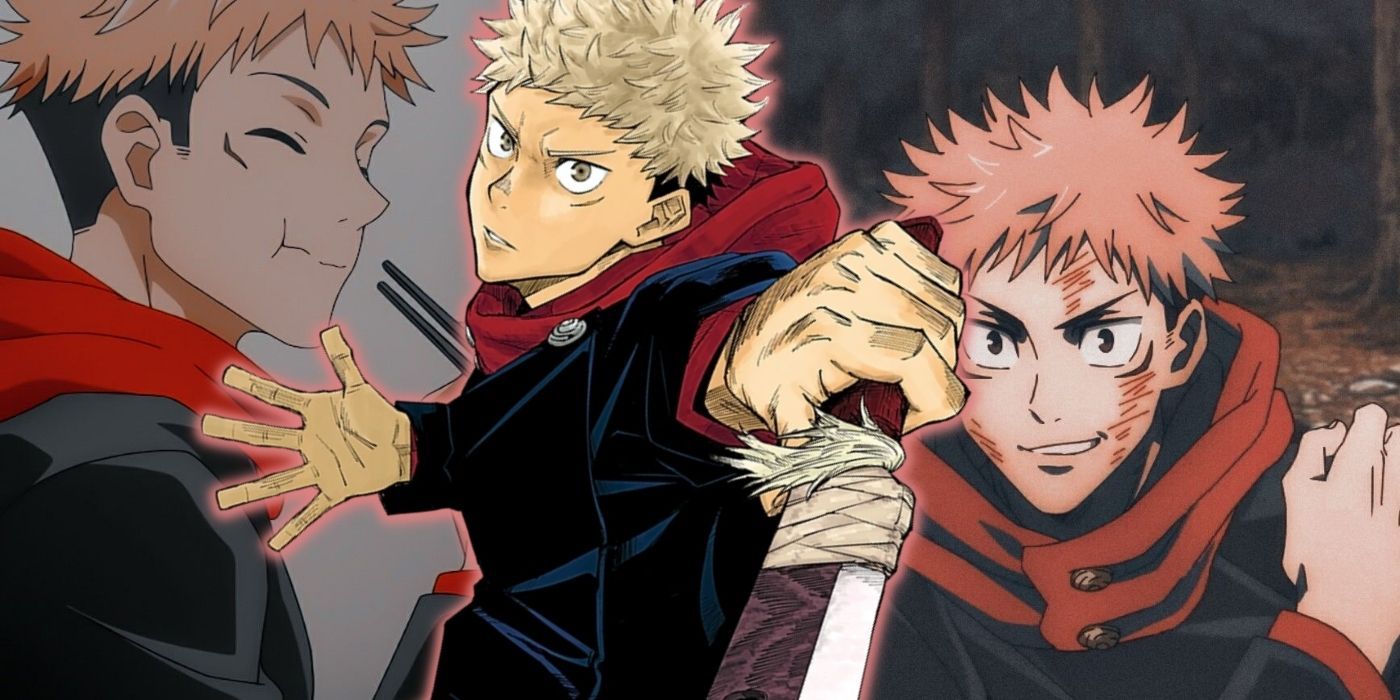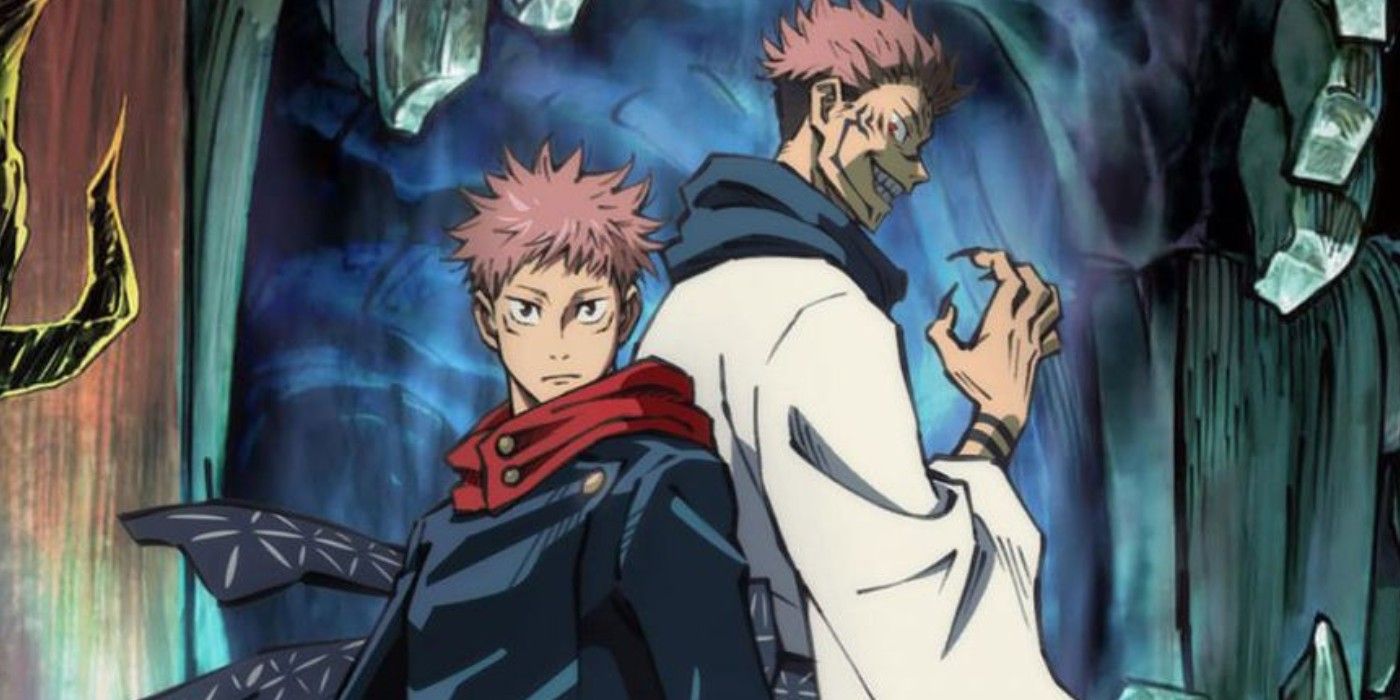Jujutsu Kaisen is a smash-hit shonen action anime that clearly takes many cues from titles in the original "big three," namely Tite Kubo's Bleach and, to a lesser extent, Masashi Kishimoto's Naruto. This includes the design of Jujutsu Kaisen's combat system as well as the life experiences of protagonist Itadori Yuji.
While Yuji shares some traits with Bleach's Ichigo as a good-hearted punk who fights supernatural monsters, he also has a similar character arc to Naruto. Both Yuji and Naruto had monstrous creatures placed inside their bodies, and this spells trouble for them. In some ways, Yuji's experience is even worse than Naruto's as the bearer of the world's greatest villain.
How Jujutsu Kaisen's Yuji Is Set Up For Failure
It's true that growing up, Jujutsu Kaisen's Yuji did not suffer the same ostracization and widespread dislike that Naruto the pariah did as a child in the Hidden Leaf Village. In fact, Yuji's high school life appeared to be fairly happy and secure given his upbeat attitude and playful membership with the occult club, but all that changed overnight. Around the same time his beloved grandfather passed away, Yuji had his life turned upside down when a curse stormed his school, forcing him to consume one of Ryomen Sukuna's fingers to become a curse sorcerer. This felt like an empowering moment at the time, but it actually sealed Yuji's doom. His carefree high school life was over, and now his life will only get worse.
In that way, Yuji is both the same as Naruto and the opposite. Both shonen heroes suffer from having dark, terrifying monsters inside them, and constantly struggle to master their own powers and earn the approval of society at large. However, while Naruto's character arc trended upward by gaining Kurama's cooperation and building himself up as a hero, Yuji's life goes in the opposite direction in Jujutsu Kaisen.
Yuji is now infamous as Sukuna's living vessel, and the sorcery world's traditionalist leaders want him dead so Sukuna can be destroyed with him. His execution has already been decided upon and not even the influential Gojo Satoru can bail him out. Instead, Gojo bargained to have Yuji's execution delayed, buying the boy time to collect more of Sukuna's fingers. Naruto had it rough, but not even he was operating on borrowed time. He gained his freedom, while Yuji's life is about to be cut tragically short because of factors beyond his control.
Yuji is more like a condemned criminal than a pariah who has something to prove, and that alone makes him more tragic than Naruto. If this weren't enough, Yuji's own inner monster, Sukuna, is an uncooperative and brutal creature who actually killed Yuji once before reluctantly reviving him later. Sukuna may take over his body at any time, and using the monster's power is dreadfully risky. Bearing Kurama came with its own baggage, but at least the nine-tailed fox came to accept Naruto as a partner and willingly lent the boy his vast chakra for battle. Kurama even stated that if Naruto dies, so does he, so he has an interest in preserving Naruto's life. Sukuna did the exact opposite with Yuji, killing him just because he could.
How Inner Monsters Fuel Character Growth in JJK and Naruto
Jujutsu Kaisen's Yuji may well have it even worse than Naruto, what with his execution being set and his inner monster being another foe rather than an odd ally much of the time. Even so, the tough yet kind-hearted Yuji won't give up, nor should he. He, Naruto and other "inner monster" characters such as Ichigo and Tokyo Ghoul's Kaneki have learned to derive strength from their internal challenges, and that can make for a compelling character arc.
In many ways, inner monsters such as Sukuna and Kurama symbolize a real-life reader's own baggage or internal problems such as self-doubt or emotional vulnerability. People often mention a horrible inner voice that speaks of their doubts, fears and insecurities, and lifestyle advice often suggests many silence that inner critic. A person must succeed and grow in spite of their inner critic, not in the absence of one, and that conflict enhances the person's mental fortitude. In the world of supernatural shonen, Yuji, Naruto and others are a more literal inner critic that the hero must overcome. It's not enough for a hero to do pushups or run laps to get stronger -- they derive true power from mastering themselves first.
In the end, even if Yuji faces problems that not even Naruto can comprehend, both characters are in the same position and handle it well. Never once did Yuji give in to despair about his impending execution or the gruesome true nature of Sukuna. Instead, Yuji bears this burden and uses it as a reason to treat others with the utmost kindness and generosity. Similarly, Naruto found emotional strength in his suffering and used it to reach out to Gaara, redeeming him. From the darkest lifestyle comes the brightest rays of hope.



